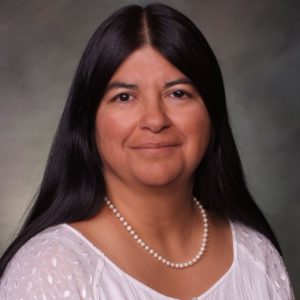
Colorado legislators sent a message of cooperation during a presentation for the University of Denver’s Center on American Politics. Two state representatives and two state senators spoke Friday about the types of legislation constituents can expect to see debated during the coming legislative session, scheduled to reconvene Jan. 10, and a few legislators said they especially wanted to emphasize the importance of bipartisan cooperation to getting things accomplished for Colorado.
“When people think about politics nationally, they certainly think that there is a lot of dysfunction and difficulty passing legislation, and we’ve actually had pretty good success in Colorado working on a bipartisan basis,” Rep. Cole Wist, the House’s assistant minority leader and an attorney told Law Week before the event. He said of the 681 bills introduced in the 2017 legislative session, 63 percent had bipartisan support. Wist added of the 423 that passed both chambers, 82 percent had bipartisan sponsors.
“I think the folks that are successful in the legislative process tend to be folks who find partners on the other side and work for common ground and work for good public policy that serves the interest of the state,” he said.
Wist has worked on past bills such as last year’s construction defect reform bill, House Bill 1279, and said he is optimistic about debating a wide array of issues such as reform for the Public Employees’ Retirement Association, oil and gas and criminal justice in the coming session.
Sen. Irene Aguilar, a Democrat and career physician, said a goal of last Friday’s discussion at the Center on American Politics is to let constituents know whom they can contact about issues important to them.
With the frequent proliferation of misinformation, “having a safe environment in which to answer your questions is key,” she said in an interview with Law Week before the event.
Seth Masket, director of the Center on American Politics, said the center has a twofold mission of providing education about politics both to the DU community and to the public. He explained events like the one last Friday are a good chance to learn about key issues from a bipartisan perspective.
“There’s a lot of important issues being addressed at the state level,” he said, and a lot of issues that students and faculty care about, whether they concern health, finance or a myriad of other topics.
Aguilar spoke about the importance of addressing the opioid crisis and a few bills introduced in response.
They address issues like limiting amounts of medication allowed in a single prescription and removing barriers to receiving inpatient treatment, such as seeking Medicaid funding for substance abuse treatment.
Aguilar said the sheer reach of the opioid crisis has made it an important issue to her.
She explained she believed the obstacles for inpatient treatment contributed significantly to the demise of Arapahoe House, which was the state’s largest provider of drug and alcohol treatment until it closed Tuesday.
She said she believes it is crucial that state efforts to address the opioid crisis mirror the national efforts. “I always feel like it’s important for people to hear the same message over and over again,” Aguilar said. She added progress sometimes can be made at the state level more quickly than nationally.
Aguilar echoed Wist’s optimism about the state legislature’s ability to cooperate among the two political parties, pointing to the hundreds of bills and budget passed each year. “The talks of polarization, I think, are over-exaggerated.”

Wist said reform for PERA will likely be the most significant carryover fiscal issue from the last legislative session. The organization provides and manages retirement benefits for over half a million current and former public employees.
A reform package approved by PERA’s governing board in September has called for lower benefits and higher contributions from workers and taxpayers to help close the more than $32 billion deficit.
“Reforming PERA to make sure that it remains viable for retirees and new enrollees in the system” will be a significant issue, Wist said. Critics of the overhaul have said it’s an inadequate temporary solution to a severe funding problem and a significant negative economic event will start the cycle over agin. But Wist said the state can no longer “kick the can down the road.”
“We’ve gotten proposals from the governor, from the state treasurer and from the PERA board itself,” he said. “And what I hope is that we’ll have a conversation about the best ideas in all of those proposals and try to find ways to make sure that PERA remains solvent for many years to come.”
In broader fiscal matters, Cole said he wants to have discussions in the session about ways to get more legislators involved in the budget proposal’s process. He said ideally, all members of the general assembly would participate. “If you wait until the budget gets to each chamber, which is well into the session, it’s very difficult to make meaningful changes to the budget,” he said. “There’s nothing more important in the session other than passing the balanced budget, and that reflects our priorities as a state.”
—Julia Cardi

